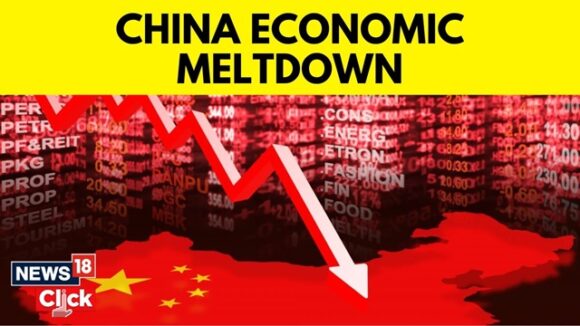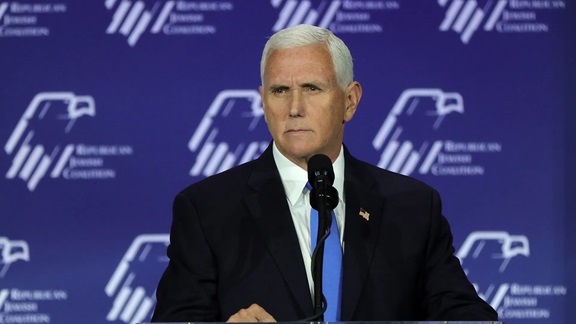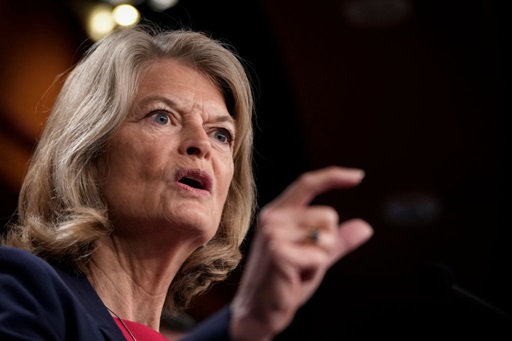
Dear Commons Community,
Anne Stevenson-Yang, co-founder of J Capital Research and the author of Wild Ride: A Short History of the Opening and Closing of the Chinese Economy, had a guest essay in The New York Times, describing China’s failing economy and what it means for the world system. It is a very illuminating piece and one that our political leaders should read and reread. Here is an excerpt:
“Chinese manufacturing overcapacity is flooding global markets with cheap Chinese exports, distorting world trade and leaving American businesses and workers struggling to compete.
Not surprisingly, China’s leaders did not like what they heard, and they didn’t budge. They can’t. Years of erratic and irresponsible policies, excessive Communist Party control and undelivered promises of reform have created a dead-end Chinese economy of weak domestic consumer demand and slowing growth. The only way that China’s leaders can see to pull themselves out of this hole is to fall back on pumping out exports.
That means a number of things are likely to happen, none of them good. The tide of Chinese exports will continue, tensions with the United States and other trading partners will grow, China’s people will become increasingly unhappy with their gloomy economic prospects and anxious Communist Party leaders will respond with more repression.”
She also mentioned that: “monthly government data revealed last year that 21 percent of Chinese youth in urban areas were unemployed.”
I visited China twice as part of invited academic exchanges in 2002 and 2006. Each visit lasted about three weeks and involved meetings with education policy makers, college administrators, and faculty. China was in the middle of a large expansion of its higher education system to increase the number of people in its population going to college from 7% to 25%. On several occasions, I asked questions about the ability of the Chinese economy to absorb the increase and provide meaningful employment for people with college degrees. I generally did not receive any substantive answers and stopped asking the questions so as not to appear impolite.
Stevenson-Yang’s piece is most important reading for anyone interested in the precarious position of the Chinese economic system.
Below is the entire guest essay.
Tony
———————————————————————————–
The New York Times
Anne Stevenson-Yang
Guest Essay
China’s Dead-End Economy Is Bad News for Everyone
May 11, 2024
On separate visits to Beijing last month, Secretary of State Antony Blinken and Treasury Secretary Janet Yellen bore a common message: Chinese manufacturing overcapacity is flooding global markets with cheap Chinese exports, distorting world trade and leaving American businesses and workers struggling to compete.
Not surprisingly, China’s leaders did not like what they heard, and they didn’t budge. They can’t. Years of erratic and irresponsible policies, excessive Communist Party control and undelivered promises of reform have created a dead-end Chinese economy of weak domestic consumer demand and slowing growth. The only way that China’s leaders can see to pull themselves out of this hole is to fall back on pumping out exports.
That means a number of things are likely to happen, none of them good. The tide of Chinese exports will continue, tensions with the United States and other trading partners will grow, China’s people will become increasingly unhappy with their gloomy economic prospects and anxious Communist Party leaders will respond with more repression.
The root of the problem is the Communist Party’s excessive control of the economy, but that’s not going to change. It is baked into China’s political system and has only worsened during President Xi Jinping’s decade in power. New strategies for fixing the economy always rely on counterproductive mandates set by the government: Create new companies, build more industrial capacity. The strategy that most economists actually recommend to drive growth — freeing up the private sector and empowering Chinese consumers to spend more — would mean overhauling the way the government works, and that is unacceptable.
The party had a golden opportunity to change in 1989, when the Tiananmen Square protests revealed that the economic reforms that had begun a decade earlier had given rise to a growing private sector and a desire for new freedoms. But to liberalize government institutions in response would have undermined the party’s power. Instead, China’s leaders chose to shoot the protesters, further tighten party control and get hooked on government investment to fuel the economy.
For a long time, no one minded. When economic or social threats reared their heads, like global financial crises in 1997 and 2007, Chinese authorities poured money into industry and the real estate sector to pacify the people. The investment-driven growth felt good, but it was much more than the country could digest and left China’s landscape scarred with empty cities and industrial parks, unfinished bridges to nowhere, abandoned highways and amusement parks, and airports with few flights.
The investment in industrial capacity also generated an explosion in exports as China captured industries previously dominated by foreign manufacturers — mobile phones, television sets, solar panels, lithium-ion batteries and electric vehicles. Much of the Chinese economic “miracle” was powered by American, European and Japanese companies that willingly transferred their technical know-how to their Chinese partners in exchange for what they thought would be access to a permanently growing China market. This decimated manufacturing in the West, even as China protected its own markets. But the West let it slide: The cheap products emanating from China kept U.S. inflation at bay for a generation, and the West clung to the hope that China’s economic expansion would eventually lead to a political liberalization that never came.
To raise money for the government investment binge, Beijing allowed local authorities to collateralize land — all of which is ultimately owned or controlled by the state — and borrow money against it. This was like a drug: Local governments borrowed like crazy, but with no real plan for paying the money back. Now many are so deep in debt that they have been forced to cut basic services like heating, health care for senior citizens and bus routes. Teachers aren’t being paid on time, and salaries for civil servants have been lowered in recent years. Millions of people all over China are paying mortgages on apartments that may never be finished. Start-ups are folding, and few people, it seems, can find jobs.
To boost employment, the party over the past couple of years has been telling local governments to push the establishment of new private businesses, with predictable consequences: In one county in northern China, a village secretary eager to comply with Beijing’s wishes reportedly asked relatives and friends to open fake companies. One villager opened three tofu shops in a week; another person applied for 20 new business licenses.
When mandates like that fail to create jobs, the party monkeys with the employment numbers. When monthly government data revealed last year that 21 percent of Chinese youth in urban areas were unemployed, authorities stopped publishing the figures. It resumed early this year, but with a new methodology for defining unemployment. Presto! The number dropped to 15 percent.
But Mr. Xi’s policy options are dwindling.
With the real estate market imploding, the government can no longer risk goosing the property sector. It has begun touting a revival in domestic consumption, but many Chinese are merely hunkering down and hoarding assets such as gold against an uncertain future. So the government is again falling back on manufacturing, pouring money into industrial capacity in hopes of pushing out more products to keep the economy going. With domestic demand anemic, many of those products have to be exported.
But the era when China was able to take over whole industries without foreign pushback is over. Many countries are now taking steps to protect their markets from Chinese-made goods. Under U.S. pressure, Mexico’s government last month reportedly decided it would not award subsidies to Chinese electric vehicle makers seeking to manufacture in Mexico for export to the U.S. market; the European Union is considering action to prevent Chinese electric vehicles from swamping its market; and the Biden administration has moved to encourage semiconductor manufacturing in the United States and limit Chinese access to chip technologies, and has promised more actions to thwart China.
China won’t be able to innovate its way out of this. Its economic model still largely focuses on cheaply replicating existing technologies, not on the long-term research that results in industry-leading commercial breakthroughs. All that leaves is manufacturing in volume.
China’s leaders will face rising economic pressure to lower the value of the renminbi, which will make Chinese-made goods even cheaper in U.S. dollar terms, further boosting export volume and upsetting trading partners even more. But a devaluation will also make imports of foreign products and raw materials more expensive, squeezing Chinese consumers and businesses while encouraging wealthier people to get their money out of China. The government can’t turn to economic stimulus measures to revive growth — pouring more renminbi into the economy would risk crushing the currency’s value.
All of this means that the “reform and opening” era, which has transformed China and captivated the world since it began in the late 1970s, has ended with a whimper.
Mao Zedong once said that in an uncertain world, the Chinese must “Dig tunnels deep, store grain everywhere and never seek hegemony.” That sort of siege mentality is coming back.













